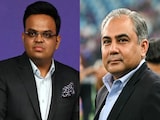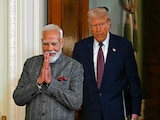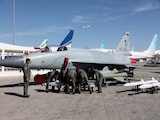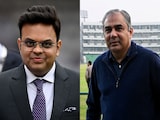Bangladesh has been in political turmoil since a student-led uprising forced former prime minister Sheikh Hasina to flee into exile last year, ending her 15-year autocratic rule.
An interim government under Nobel-winning Muhammad Yunus has promised elections in February.
But scepticism is high in the Muslim-majoritycountry of 170 million people, with politics fractured and violence rising.
Five months before polls expected in early February 2026, alliances forged during and after Hasina's fall are splintering.
Who are the key parties?
With Hasina's former ruling Awami League banned, the main players are the Bangladesh Nationalist Party (BNP) and the Islamist party Jamaat-e-Islami.
The other key group is the National Citizen Party (NCP), formed by student leaders who spearheaded the uprising.
Rivalries have fuelled fears of street clashes, while Yunus struggles to restore trust in the process.
Where does Yunus stand?
Yunus, the 85-year-old microfinance pioneer who will step down after polls, insists there is "no alternative to election".
Michael Kugelman, a US-based analyst who recently visited Bangladesh, suggests some key elements "may have an interest in elections being delayed".
Yunus' personal distance from day-to-day politics, along with speculation about military involvement, has fuelled uncertainty.
Recent meetings between the army chief General Waker-Uz-Zaman and top officials have heightened speculation.
In a country with a long history of coups, the army retains a powerful role.
Why are groups divided?
The flashpoint is the July National Charter, a sweeping reform document that proposes a two-term limit for prime ministers, and the expansion of presidential powers.
Parties have agreed on 84 reform proposals -- but are divided over how the charter should be put into effect. The key dispute is over its legal weight.
"The main point of contention now is the procedure for implementing them," said Ali Riaz, vice-chairman of the National Consensus Commission.
The BNP argues it cannot override the existing constitution until after elections due in February, when a new parliament could endorse it.
Others want it endorsed before the polls.
Senior Jamaat leader Syed Abdullah Mohammad Taher told AFP that "people should be given a chance to share their opinions" on the reforms, meaning that "a referendum is essential".
NCP senior leader Saleh Uddin Sifat said it would be a betrayal to those who died in the uprising if there was no "legal basis" to it before elections.
"We are not going to participate in the election without our demands being fulfilled," Sifat told AFP.
What are parties arguing about?
Hasina's Awami League was banned by executive order.
Jamaat wants 13 more groups barred for past ties to Hasina, including the Jatiya Party.
The BNP opposes such bans, insisting any case against the Awami League should go through the courts.
"Banning any political party through executive order is not what we support," Salahuddin Ahmed of the BNP said, insisting the decision must have legal backing through the judicial process.
Yunus has faced allegations of bias after meeting BNP leader Tarique Rahman in London, angering Jamaat and the NCP.
What challenges are ahead?
The interim government faces eroding law and order.
Zahid Hussain, former lead economist at the World Bank, described the interim government as "cordial and brave" -- but also "helpless and bewildered".
Rights groups Ain o Salish Kendra reported 124 mob lynchings this year, while police data show a rise in murders, rapes and robberies.
Analysts say Yunus will need full military backing to deliver credible elections, and guarantees that all parties can contest freely.
Mamun Al Mostofa, professor of political science at the University of Dhaka, said for elections to be held in a timely manner, Yunus would need "unconditional and constant support of the military".
(Except for the headline, this story has not been edited by NDTV staff and is published from a syndicated feed.)















